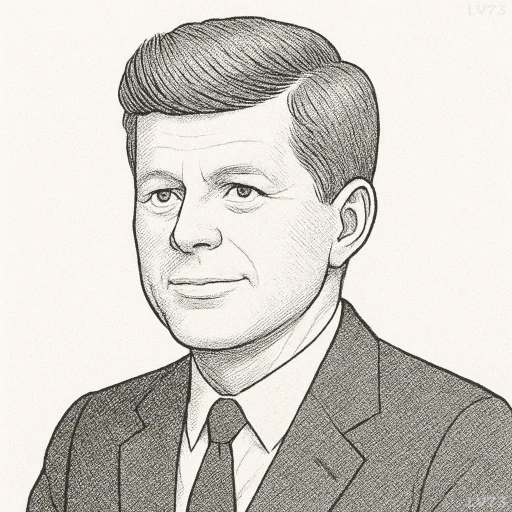“The great enemy of the truth is very often not the lie, deliberate, contrived and dishonest, but the myth, persistent, persuasive and unrealistic.”

- May 29, 1917 – November 22, 1963
- American
- Politician
table of contents
Quote
“The great enemy of the truth is very often not the lie, deliberate, contrived and dishonest, but the myth, persistent, persuasive and unrealistic.”
Explanation
In this statement, John F. Kennedy highlights the insidious power of myths—not in the form of deliberate lies but as persistent beliefs that are not based in reality. Kennedy suggests that myths, which are often passed down or created within cultures, can be even more dangerous than lies because they can be persistent and persuasive, shaping people’s understanding of the world in ways that distort the truth. Myths can create idealized or unrealistic narratives that are deeply entrenched in society, making them difficult to challenge or dismantle. Unlike deliberate lies, which are recognized as falsehoods, myths have the ability to masquerade as truth over time, often taking on a self-reinforcing quality that makes them harder to question or change.
Kennedy’s statement speaks to the danger of unquestioned assumptions or misconceptions that become entrenched in society, particularly when those myths support certain political ideologies, social norms, or cultural narratives. This is particularly relevant in the context of his presidency, when the U.S. was grappling with various national myths—such as the idea of American exceptionalism or the notion of inevitable progress—that sometimes obscured the truth of social inequality, race relations, or the realities of foreign conflicts like the Vietnam War. Myths have a powerful way of influencing public opinion, often creating a false narrative that can steer public discourse in unproductive or damaging directions. In this sense, Kennedy is warning that the true enemy of progress and understanding is not always deceptive intentions, but rather the comfort of false beliefs that are widely accepted and perpetuated, even in the face of evidence to the contrary.
In contemporary times, Kennedy’s words have deep resonance. In an era of misinformation, conspiracy theories, and echo chambers, myths—whether about political figures, historical events, or societal structures—continue to influence public opinion in powerful ways. These myths are often persistent, persuasive, and hard to dislodge, making it difficult for individuals or societies to confront the truth. Whether related to economic systems, climate change, or international relations, myths can shape how societies understand and respond to critical issues. Kennedy’s insight calls on us to be vigilant and critical of widely held beliefs, urging us to challenge and question persistent myths in order to arrive at a deeper, more nuanced understanding of reality. The ultimate goal is to discern truth from fiction and to foster a more informed and open society, where beliefs are grounded in facts rather than myths.
Would you like to share your impressions or related stories about this quote in the comments section?



